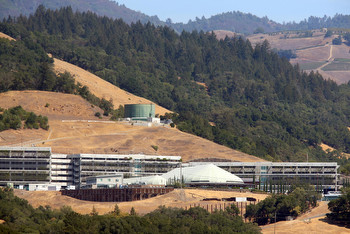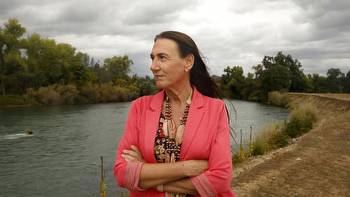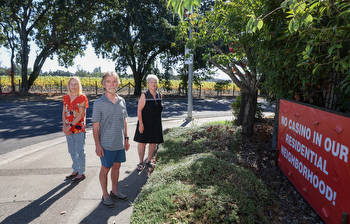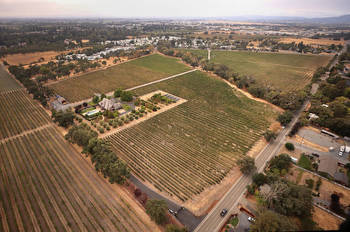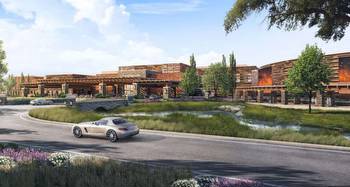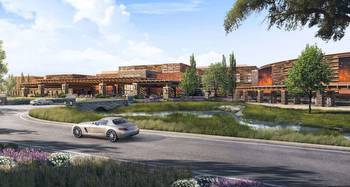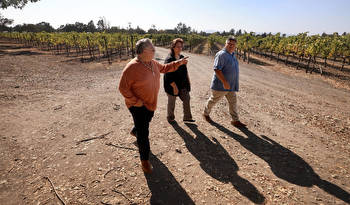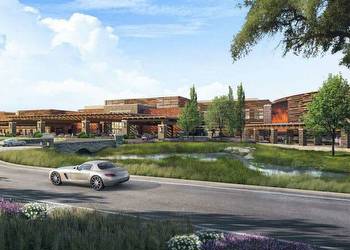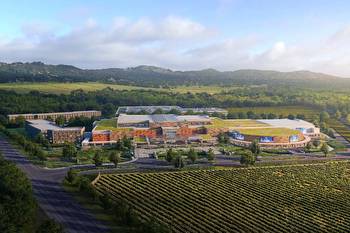Sonoma County supervisors to consider updated deal with Dry Creek Rancheria, owners of River Rock Casino
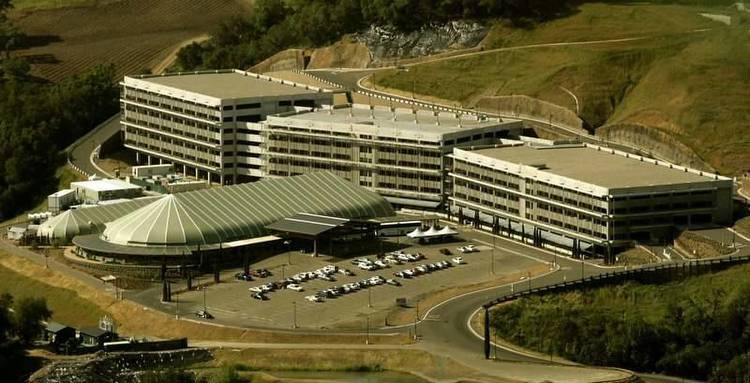
Under the proposed new agreement, Dry Creek Rancheria could build a resort with nearly 300 hotel rooms, a 60,000 square-foot casino with up to 1,500 slot machines, a spa, restaurants and other amenities on its existing site above Alexander Valley.|
The tribe behind River Rock Casino near Geyserville has reached a proposed agreement with Sonoma County establishing a clear path to build a resort-style destination on its existing gaming site, with up to 1,500 slots, a nearly 300-room hotel and other amenities.
The agreement also includes provisions outlining payments to the county, a conditional agreement not to build a casino on its land outside Petaluma and the terms of any future environmental studies.
The deal reflects the Dry Creek Rancheria Band of Pomo Indians’ efforts revise terms from an original 2008 agreement which the tribe deems unfair and comes as it faces financial losses amid competition from newer, larger casinos in the region.
The agreement will go before the Board of Supervisors for approval on Tuesday.
“The new MOA (memorandum of agreement) that we've been working on for years is fair to Dry Creek Rancheria and the County,” Chris Wright, chairman for Dry Creek Rancheria, said in an email. “We have built a good relationship with the county counsel and county supervisors. I look forward to maintaining that government to government relationship for years to come.”
The tribe had announced plans 16 years ago that called for construction on what was then a $300 million luxury resort hotel and casino to replace its original gaming facility, which opened in 2002 overlooking the heart of Alexander Valley. Those plans never came to fruition.
Wright, who answered Press Democrat questions by email Friday, said the 2008 agreement “was too cumbersome and took away Dry Creek Rancheria’s sovereignty.”
Under the proposed new agreement, Dry Creek Rancheria envisions a resort with less than 300 hotel rooms, a 60,000 square-foot casino with up to 1,500 slot machines — 300 more than the current gaming hall — table games, a spa, restaurants, wedding chapel, multifunction event center, salon, fitness center and food court.
Wright said there is no project timeline.
River Rock was the first of Sonoma County’s now two tribal casinos.
The second is the Graton Resort and Casino, the Bay Area’s largest gaming destination, opened in 2013 on Rohnert Park’s outskirts. The casino’s owners, the Federated Indians of Graton Rancheria last year announced plans for a major expansion of its gaming floor and a second hotel tower.
Another Pomo tribe, the Koi Nation, is seeking to develop a gaming resort outside Windsor, a move opposed by five Sonoma County-based tribes, as well as the county Board of Supervisors.
The Dry Creek Rancheria’s 2008 deal agreement with the county allowed up to 600 hotel rooms and a 88,000-square-foot casino with up to 3,000 gaming devices.
A county staff report notes the 2008 recession “substantially negatively impacted the Casino’s economic performance” and the opening of the newer and larger Graton Casino and Resort in Rohnert Park, “substantially reduced” River Rock Casino’s revenue, reportedly as high as 50%.
The existing River Rock Casino, on the tribe’s 75-acre reservation east of Highway 128, features a 60,000 square-foot tent-domed gaming hall with approximately 1,200 slot machines and a seven-story parking garage.
Under the new agreement, Dry Creek Rancheria will pay the county $750,000 annually until four years after the resort is built, at which time a 2% annual increase will kick in. Annual payments will not exceed $1.5 million.
In 2008, the tribe had agreed to pay $3.5 million annually to cover the cost of related public services. It fell behind on those payments and agreed to pay a $4 million lump sum in later negotiations and reduced annual payments, said Supervisor James Gore, who represents the area.
In the new proposed agreement with the county, Dry Creek Rancheria also has agreed not to build a casino on 277 acres it owns near Petaluma’s southern border until at least 2035. That provision is conditional, in case the Koi Nation succeeds in its bid to build its proposed casino in Windsor.
Alexander Valley neighbors are concerned about the new agreement with Dry Creek Rancheria and say the county should have done more to include them in the negotiations with the tribe.
“We coexist and I would say we respect each other,” said Karin Warnelius-Miller, president of the Alexander Valley Association which represents families, farmers and businesses in the area.
“We understand that they run a business operation but also our greatest concern is the impacts of their business on our community,” she said in an interview.
In past negotiations, Warnelius-Miller said the association “has always had a voice at the table” but found that access shut down during the most recent negotiations.








